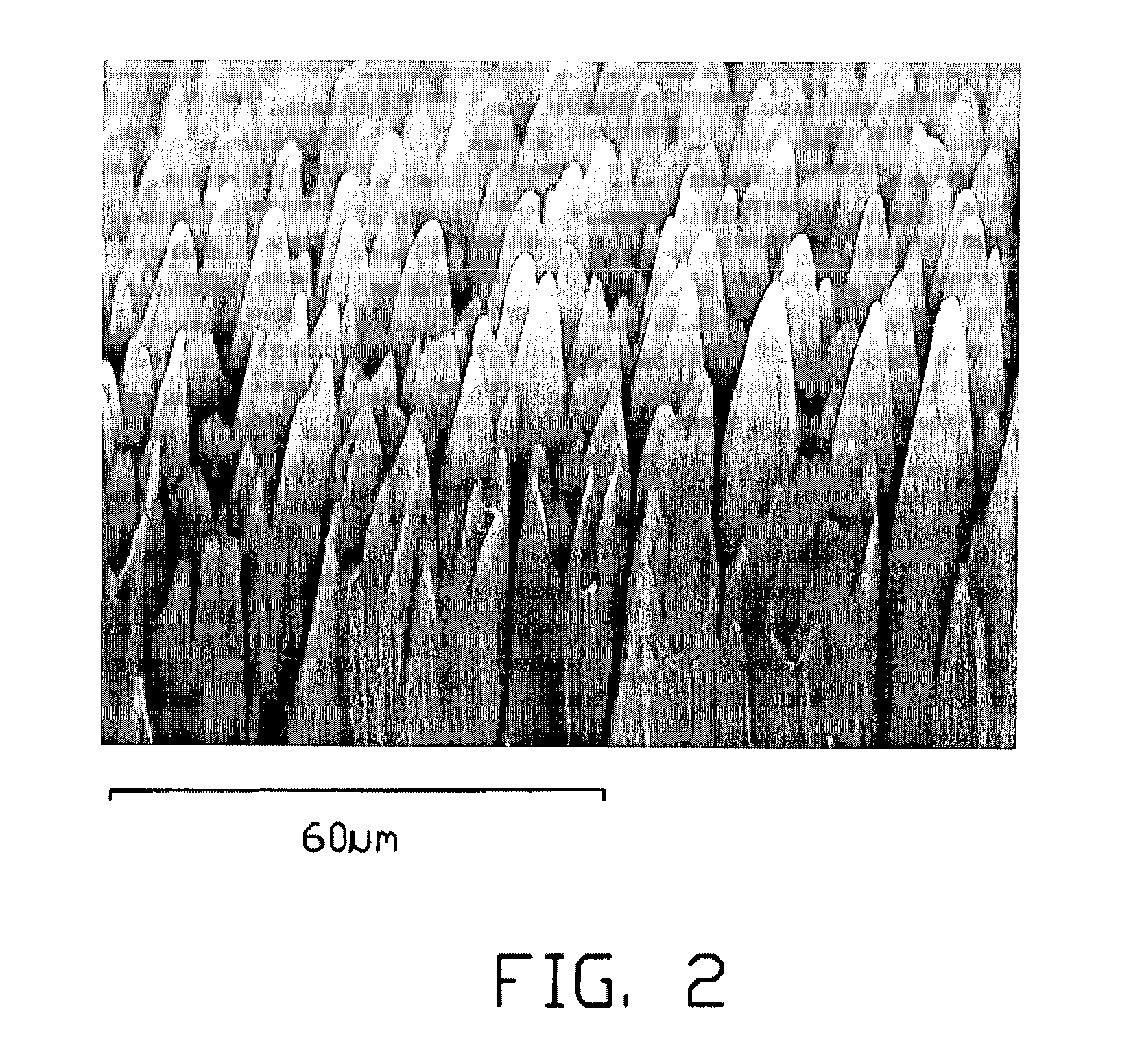Carbon nanotube array and field emission device using same
a carbon nanotube and array technology, applied in the manufacture of discharge tube main electrodes, discharge tube/lamp manufacture, electrode systems, etc., can solve the problems of non-uniform height and orientation of carbon nanotubes formed by arc discharge and laser vaporization methods, and the inability to satisfactorily use carbon nanotubes as field emission materials, etc., to achieve the effect of reducing shielding
- Summary
- Abstract
- Description
- Claims
- Application Information
AI Technical Summary
Benefits of technology
Problems solved by technology
Method used
Image
Examples
Embodiment Construction
[0020]Referring to FIG. 1, a field emission device in accordance with a preferred embodiment of the present invention comprises a substrate 11 and a carbon nanotube array 12 formed thereon. The substrate 11 can be made of glass, silicon, alumina or another suitable material. The carbon nanotube array 12 can be formed by growing them on the substrate 11 directly, or by transplanting pre-prepared carbon nanotubes onto the substrate 11. Carbon nanotubes 120 of the carbon nanotube array 12 are substantially parallel to each other, and are each substantially perpendicular to the substrate 11. The carbon nanotubes 120 cooperatively form a plurality of lower portions 121 and a plurality of corresponding tapered tips 122 above the lower portions 121. Each lower portion 121 and tapered tip 122 comprises a plurality of carbon nanotubes 120. Each tip 122 is oriented substantially perpendicular to the substrate 11. Distances between adjacent tips 122 are approximately uniform, and are more than...
PUM
| Property | Measurement | Unit |
|---|---|---|
| distance | aaaaa | aaaaa |
| distances | aaaaa | aaaaa |
| diameter | aaaaa | aaaaa |
Abstract
Description
Claims
Application Information
 Login to View More
Login to View More - R&D
- Intellectual Property
- Life Sciences
- Materials
- Tech Scout
- Unparalleled Data Quality
- Higher Quality Content
- 60% Fewer Hallucinations
Browse by: Latest US Patents, China's latest patents, Technical Efficacy Thesaurus, Application Domain, Technology Topic, Popular Technical Reports.
© 2025 PatSnap. All rights reserved.Legal|Privacy policy|Modern Slavery Act Transparency Statement|Sitemap|About US| Contact US: help@patsnap.com



